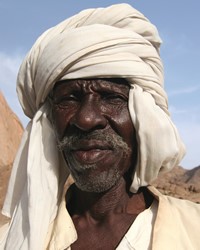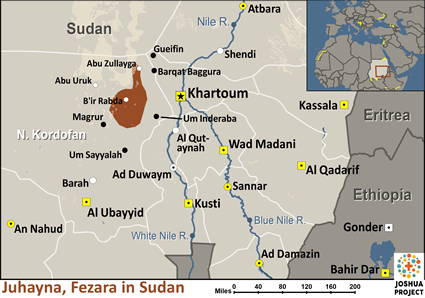The Juhayna Fezara share many cultural characteristics with the numerous Baggara tribes of northern Sudan. All of them speak an Arabic dialect that both Arabic and Sudanese Arabic speakers can understand.
The nomadic Juhayna Fezara live in camp units called furgan. Members of the furgan generally belong to one or more family lines. Their homes are simple dome-shaped tents, which are portable structures that can easily be packed and moved with the herds. The tents are arranged in a circle into which the cattle are brought for the night to keep them from straying or being stolen.
The Juhayna Fezara have deep historical roots to Islam. They are unlikely to consider Jesus Christ's claims, especially since they are not on good terms with most Christian groups.
Their nomadic lifestyle makes it hard for workers to stay with them. However, Muslim missionaries once did. They need Christ's ambassadors to bring truth to their communities.
Pray for the end of violence between the tribes of Sudan.Pray for a spiritual hunger among the Juhayna Fezara.Pray for workers directed by the Holy Spirit to share the gospel with them.Pray for a movement to Christ to sweep through the Baggara tribes.
Scripture Prayers for the Fezara, Juhayna in Sudan.
| Profile Source: Joshua Project |

























